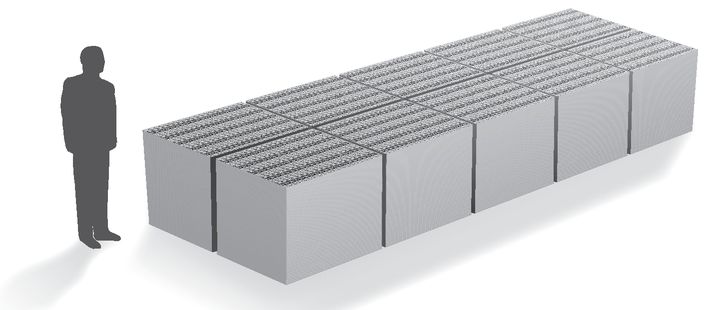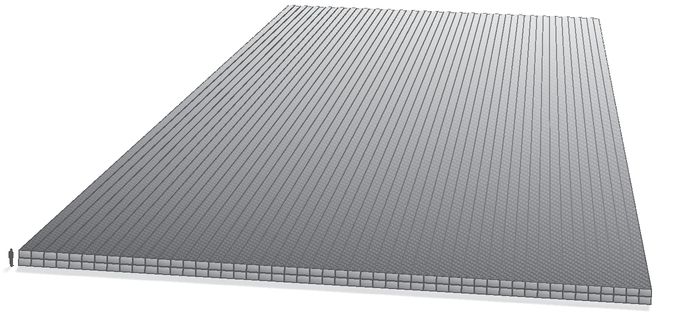A Simple Government (6 page)
Read A Simple Government Online
Authors: Mike Huckabee

At times it seems as though we’ve drifted so far out to sea that we’ll never see dry land again. But the enduring power of our Founders in the form of the printed word—the Constitution,
The Federalist Papers
, and other writings—provides us with a sturdy anchor. And the undying yearning of Americans to live free can help us row against the tide of oppression and safely return to shore.
The Federalist Papers
, and other writings—provides us with a sturdy anchor. And the undying yearning of Americans to live free can help us row against the tide of oppression and safely return to shore.
CHAPTER THREE
You Can’t Spend What You Don’t Have; You Can’t Borrow What You Can’t Pay Back
We Need to Control Spending and Debt
B
oy, do I feel like one of the chosen people. Right this minute, there is a big smile on my face because I’ve just signed papers to buy a hundred-million-dollar house with sixteen bedrooms and twenty-one baths set on three hundred acres in New York’s trendy Hamptons. The property comes with its own yacht dock, discreetly set-aside servants’ quarters, and a twelve-car heated garage. (It can get cold sometimes at the edge of the Atlantic.) But that’s just the beginning. To sweeten the deal my banker has not only approved a mortgage covering the entire amount with no collateral; he’s also offered (and I accepted) an additional twenty-five million dollars for moving-in expenses. I can buy new furniture for the entire house and some really snazzy cars for the garage and hire cooks, gardeners, and a maid service to keep the whole place spotless while I watch sports on my high-definition fifty-inch flat-screen television. All of this was put together by my generous banker without a credit check or income verification, so I don’t think I have to worry about paying off the loan and probably won’t even bother making payments. After all, I have three kids, don’t I? And grandchildren on the way? It will be their job to pay off my wife’s and my debts. We raised them, so they can support us for a little while, right?
oy, do I feel like one of the chosen people. Right this minute, there is a big smile on my face because I’ve just signed papers to buy a hundred-million-dollar house with sixteen bedrooms and twenty-one baths set on three hundred acres in New York’s trendy Hamptons. The property comes with its own yacht dock, discreetly set-aside servants’ quarters, and a twelve-car heated garage. (It can get cold sometimes at the edge of the Atlantic.) But that’s just the beginning. To sweeten the deal my banker has not only approved a mortgage covering the entire amount with no collateral; he’s also offered (and I accepted) an additional twenty-five million dollars for moving-in expenses. I can buy new furniture for the entire house and some really snazzy cars for the garage and hire cooks, gardeners, and a maid service to keep the whole place spotless while I watch sports on my high-definition fifty-inch flat-screen television. All of this was put together by my generous banker without a credit check or income verification, so I don’t think I have to worry about paying off the loan and probably won’t even bother making payments. After all, I have three kids, don’t I? And grandchildren on the way? It will be their job to pay off my wife’s and my debts. We raised them, so they can support us for a little while, right?
Okay, so maybe that’s just a fantasy (or perhaps a nightmare). Other than the likes of Bill Gates and Warren Buffett, practically no one in America could wangle such a deal. Except, of course, the federal government. I suppose if I were the federal government, I could indeed borrow away the past, present, and future, putting completely out of my mind how on God’s green earth it would be paid for. And why should I worry? Pesky details like how to pay for everything would be left to those sucker-punched Americans who aren’t even born yet, won’t be voting for eighteen years or more, and really won’t know what hit them until they are on their own, working hard to support themselves while also paying the taxes that (let them hope) will eventually cover the cost of my excess.
Let’s Do the MathAstronomers tell us that there are as many stars in the universe as there are grains of sand on all the beaches of the world. I can’t really imagine that, and I doubt you can either; in fact, the scientists themselves admit that this notion is incomprehensible even to them.
Here are two more astronomical facts. One, the federal budget for fiscal year (FY) 2011 is $3.8 trillion. Two, the ten-year budget through 2020 is $45 trillion.
It sounds like a lot, but terms like
trillion
mean little to most of us, who are used to five-figure salaries and counting quarters found in the couch cushions.
Million
sounds enormous enough; words like
billions
and
trillions
sound even more impressive. At that point, does it really even matter how many zeros there are at the end? It’s still a whole lot!
trillion
mean little to most of us, who are used to five-figure salaries and counting quarters found in the couch cushions.
Million
sounds enormous enough; words like
billions
and
trillions
sound even more impressive. At that point, does it really even matter how many zeros there are at the end? It’s still a whole lot!
Most of you have probably never seen a million dollars, let alone a trillion dollars. So for the sake of my argument, allow me to explain what this really means with a little help from the Web site Page
Tutor.com
.
$100Tutor.com
.
The $100 bill (what they might call “a Benjamin” in gangster movies) is currently the largest single bill in circulation in the United States. I think we’re all familiar with it, though I doubt that many of us carry them around all the time.

One hundred of these bills would, of course, add up to $10,000. This amount, which would have seemed huge to my parents, is not so daunting to most Americans these days. It, or even a multiple of it, is familiar enough in any number of transactions, from taxation to tuition. But you probably don’t visualize how this sum would look as actual bills. In fact, the stack would measure less than half an inch thick and could fit nicely in your pocket. Sure, it’s a significant amount of money, but it’s pretty easy to visualize.

Let’s up the ante to the next level. I’d guess that you, like most Americans, have never actually seen $1 million stacked up “in the flesh.” Just look at the guy below. Next to him, the stack doesn’t seem like
that
much. If you were of a mind to do so, you could readily stuff it under your mattress.
that
much. If you were of a mind to do so, you could readily stuff it under your mattress.

Multiply by a hundred and you come up with this next stack. It’s probably too hefty to fit into a suitcase, but you could stash it in the trunk of your car. And you’re probably being reminded right now of news stories you’ve read or heard about state or even local budget items. How many of these stacks did it take to settle the new contract with the teachers’ union? How many to build that new bridge or highway?

At last we begin to reach the real money. A billion dollars sure is a whole lot, no question, but I could easily load the stacks below into the back of a U-Haul. I don’t know why I would do that, but to be safe, I’d ask for an armored truck and hire a couple of armed guards to be on the lookout.

You hear the phrase “billions of dollars” tossed around all the time. So if it’s $10 billion for a bit of pork in your congressional district, you can visualize ten armored U-Hauls driving from Washington to the doorstep of your local government. Hold that thought for a moment, okay? Tell me that doesn’t make a striking picture.
There are a few people around the world who are actually worth billions. If you want to know who they are, there’s an annual list in
Forbes
magazine. In other words, this amount, even when increased by a factor of ten, is not completely unimaginable when you look at the drawing above. Picture the oil sheik and see how many trucks are lined up beside him in your mind.
$1,000,000,000,000Forbes
magazine. In other words, this amount, even when increased by a factor of ten, is not completely unimaginable when you look at the drawing above. Picture the oil sheik and see how many trucks are lined up beside him in your mind.
But you’ve been hearing a lot lately about our national debt, and you haven’t been hearing the word
billion
, right? When politicians, economists, and talking heads argue with one another about the national debt, the word they use is
trillion
. Actually, they use the word
trillions
.
billion
, right? When politicians, economists, and talking heads argue with one another about the national debt, the word they use is
trillion
. Actually, they use the word
trillions
.
Opposite, you can see $1 trillion stacked up in hundred-dollar bills. Compare it with the illustration above of a “mere” $1 billion. It is one thousand times as big. Holy cow! That’s a lot of money. But if you remember the lesson of the day on page 40, it will take almost four of these things to get us through 2011 and forty-five of them to get us through the next decade. So we’re looking at
your
money. And your grandchildren’s money. And their grandchildren’s money. In other words, we’re looking (and, again, what you see above is only a fraction of the debt that will accumulate) at the burden that will be inherited by your descendants.
your
money. And your grandchildren’s money. And their grandchildren’s money. In other words, we’re looking (and, again, what you see above is only a fraction of the debt that will accumulate) at the burden that will be inherited by your descendants.
It’s still unimaginable, really, but using these illustrations we can at least begin to grasp of the enormity of the debt we face. Our generation has bought that house in the Hamptons without paying for it. Actually, to continue that analogy, we’ll be buying 38,000,000 of those nice places in 2011 alone. Am I getting your attention?

It’s a good thing that almost no one today pays much attention to past presidents (or even knows who the heck they are). I mean, it would really mess things up for Obama and Congress if they were to hear, much less heed, the following warning from President Eisenhower’s famous farewell address on January 17, 1961:
As we peer into society’s future, we—you and I, and our government—must avoid the impulse to live only for today, plundering for our own ease and convenience the precious resources of tomorrow. We cannot mortgage the material assets of our grandchildren without risking the loss also of their political and spiritual heritage. We want democracy to survive for all generations to come, not to become the insolvent phantom of tomorrow.
Other books
Greenhouse Summer by Spinrad, Norman
Llamada para el muerto by John Le Carré
Upon the Threshold by April Zyon
Aníbal. Enemigo de Roma by Ben Kane
Dead Water by Ngaio Marsh
Dora Bruder by Patrick Modiano
Cedar Hollow by Tracey Smith
Nebula by Howard Marsh
The Youngest Hero by Jerry B. Jenkins
Dances With Demons - A Phoenix Chronicle Novella by Handeland, Lori